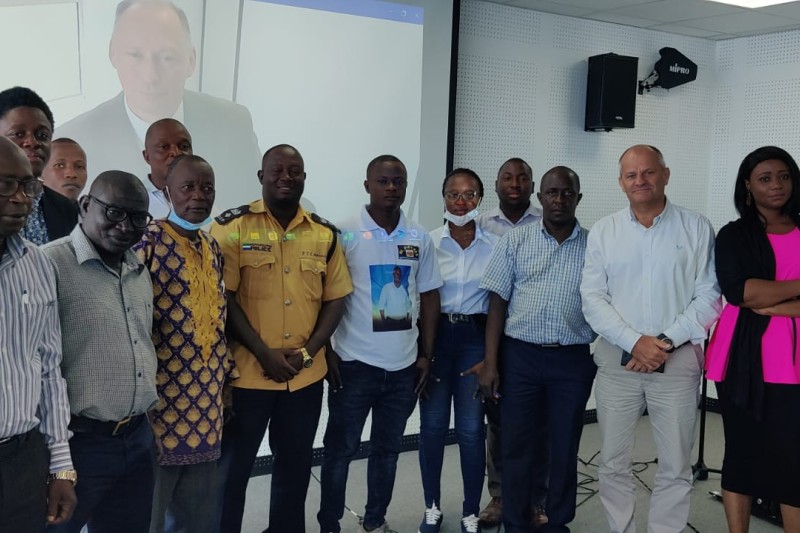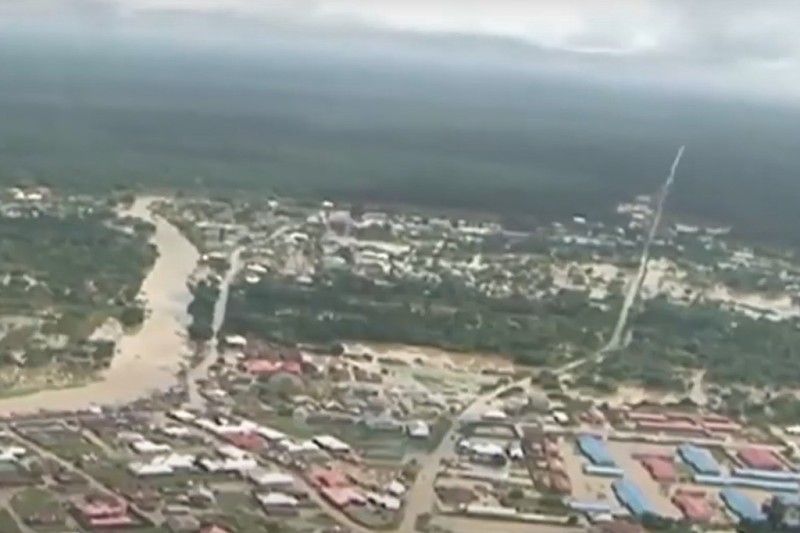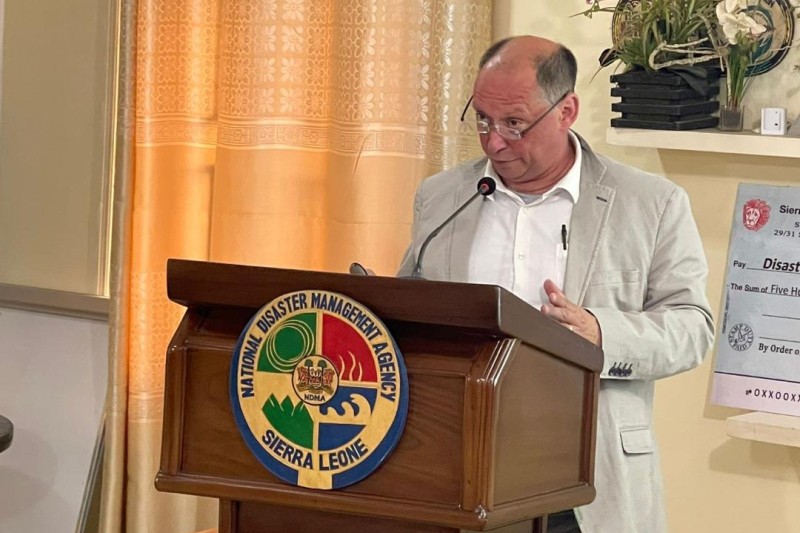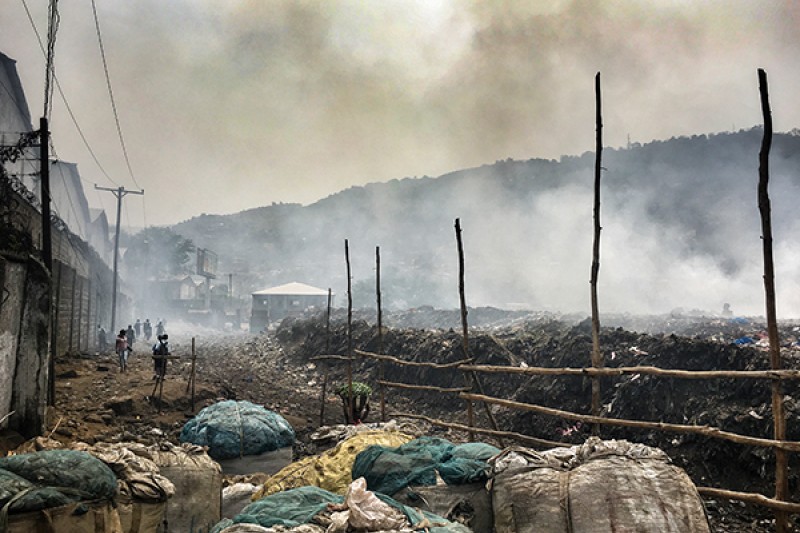EVALDIS represents a comprehensive assessment of the challenges confronting provincial, district and local disaster management across Sierra Leone.
It combines the use of Single Points of Failure concepts, diagnostics and methodologies, developed by the BU Disaster Management Centre (BUDMC), with participatory research techniques to evaluate and enhance resilience to disasters and crisis in Sierra Leone.
Funded by Research England's (RE) Participatory Research Programme during 2022, the EVALDIS project is one of the most contemporary research evaluations of the existing state of disaster management at the subnational level. The subnational level includes levels of governance below that of the national level - including provinces, districts, wards and local communities.
Research was conducted by a team from the internationally-acclaimed BUDMC, led by Professor Lee Miles, during 2022.
The project also had input from 259 national stakeholders as well as provincial, district and local disaster managers, climate change/action officers, and members of Community Disaster Management Committees (CDMCs). Tribal chiefs and volunteers from across the country have also participated in the research to enhance their own resilience to disasters in their everyday lives and among their local communities more generally.
In particular, the study included one-to-one interviews with national and subnational stakeholders, focus groups covering all 8 blocks (including 48 wards) of the capital city of Freetown (covering over 1.2 million people), and a dedicated focus group with National Disaster Management Agency (NDMA) Provincial Officers, alongside peer observations of major incidents in the country during 2022. This included participation in responses to emergencies in Sierra Leone, such as a major fire that engulfed Susan's Bay in Freetown (again) in December 2022.
The aim of the project was to provide comprehensive assessment of the challenges confronting provincial, district and local disaster management across the country and is designed to contribute valuable research-based and evidenced recommendations that can help to shape the NDMA’s thinking and direction towards developing stronger regional capacities across the country in 2023.
This will ensure that leaders in the country are as equipped as possible to respond to disaster and identify single points of failure to protect communities, to prevent loss of life, and to build resilience.
The main EVALDIS Final Report was launched at the National Disaster Management Agency’s (NDMA) headquarters and endorsed by the Government of Sierra Leone on 10 March 2023. The Ceremony included representation from the Office of the Chief Minister and the NDMA’s senior leadership, as well as representation from provinces, districts and local communities. The report received wide-ranging and highly positive national attention and was discussed and reported on extensively by the national media across Sierra Leone.
Background
BUDMC has been working in the region for almost a decade, supporting disaster management and recovery in the country, identifying single points of failure, and supporting the country in setting up disaster management plans.
EVALDIS also builds on the extensive cooperation and success of the AFRICAB project, which led to a Government-endorsed AFRICAB Final Report, launched in September 2021.
AFRICAB had already delivered a Facilitators’ Guide to Disaster Management, which was introduced to across Freetown in 2020 to help those that remain constantly vulnerable to disasters, such as fires, floods, landslides and storms.
The EVALDIS project will also evaluate how the Facilitators' Guide is being used in Freetown to enhance the city’s resilience to disasters and crisis.
Read more - Targeting disaster management: new research evidence from Sierra Leone (The Conversation)
Participatory approach
EVALDIS ran throughout 2022. A distinctive feature of the project is that it included the creation of an EVALDIS Community Advisory Board (EVALDIS-CAB) and an EVALDIS NDMA Steering Group that ensured key stakeholders, and local actors and communities directly inputted into the design, implementation and outcomes of the project.
In simple terms, EVALDIS incorporated the participation of not just influential policy makers but also provincial, district and local actors as recognised ‘knowledge users’ and to maximise the impact of EVALDIS on the ground.
The participants were highly receptive to the project and there is a firm basis and membership for further reflection and future action.
John Vandy Rogers
NDMA Deputy Director General
The work of EVALDIS will allow the Agency to access world class research and user impact findings that it can use to inform the development of regional capacity of the NDMA being implemented countrywide across Sierra Leone.
Research outputs
The project included the production of an EVALDIS Final Report, launched on 10 March 2023 and officially endorsed by the Government of Sierra Leone.
A striking finding of the report is that the development by the NDMA of regional capacity, consisting of 5 NDMA Provincial Offices and 16 NDMA District Offices, was universally regarded as a very welcome development in 2022. However, more work will need to be done to fully harness the benefits of these new arrangements.
The EVALDIS Final Report calls for a new NDMA Regional Strategy document for 2023-24 to support these next steps and offers 62 research-based recommendations and immediate action points (IAPs) that the NDMA should consider as the basis for the future strategy. The Report identified 12 thematic areas of resolvable Single Points of Failure and the 62 recommendations provide detailed practical measures to address them.
After the launch of the EVALDIS Report, the Government of Sierra Leone confirmed that the recommendations would provide evidence to support and directly input into the new implementation plans of the NDMA for new regional officers and offices across Sierra Leone in 2023-24.
EVALDIS will therefore ensure that the views of local communities are heard and help shape of the new expanding NDMA regional capacity across all five provinces of Sierra Leone.
The EVALDIS Final Report reveals – once again - the value of the focus on resolvable single points of failure as a methodology and how rigorous academic research can lead and shape viable policy recommendations that policymakers and stakeholders can regard as realistic and affordable options for Sierra Leone and African disaster management more widely.
Lt Gen (Rtd) Brima Sesay GCOR, Director General, NDMA - foreword to the EVALDIS Final Report
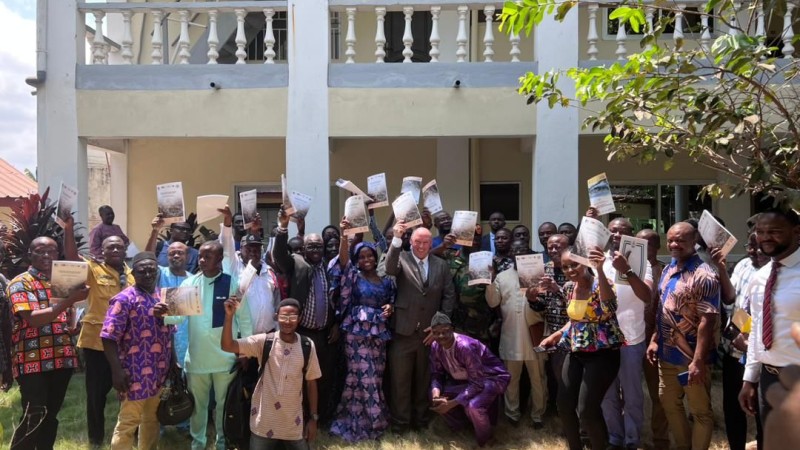
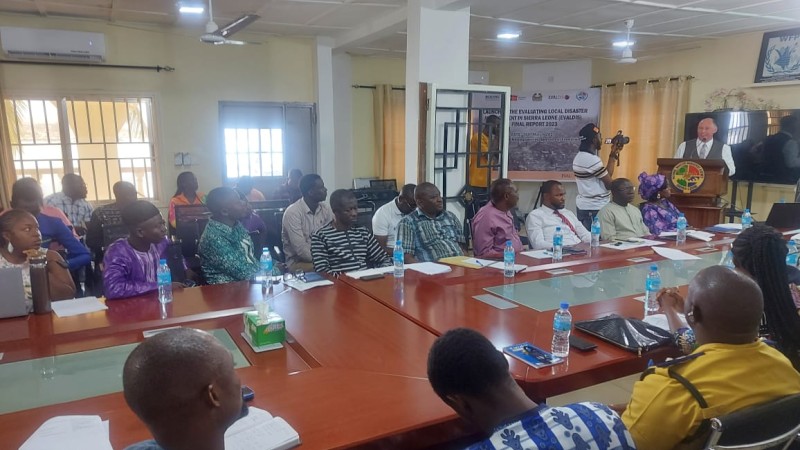
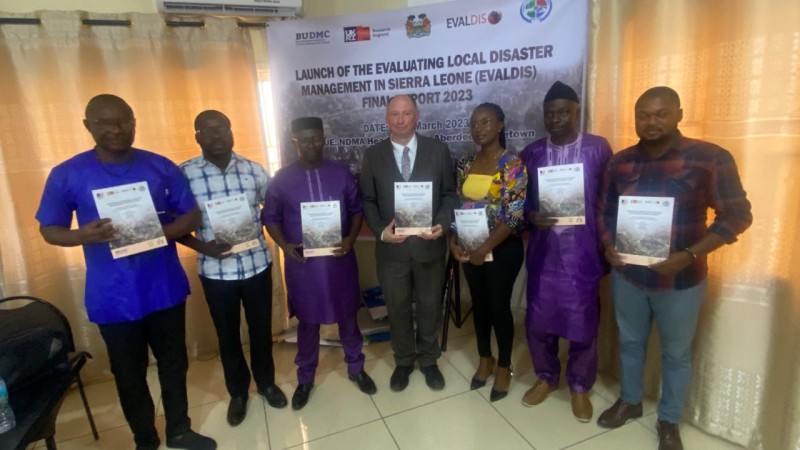
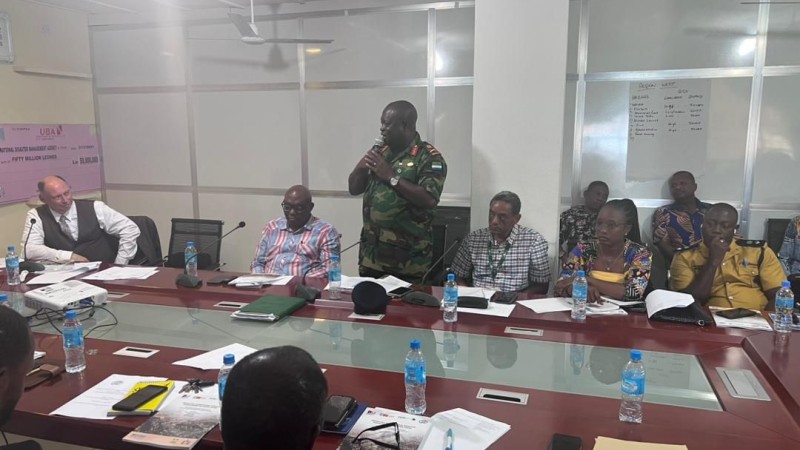
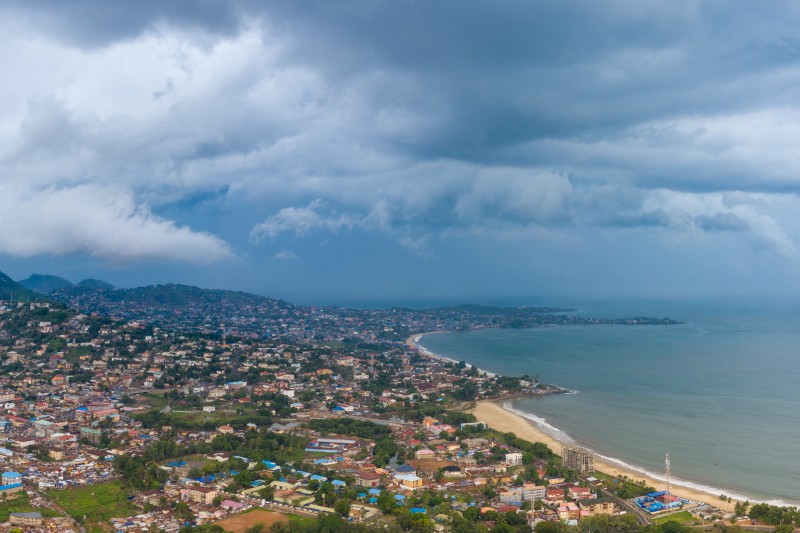 Freetown, Sierra Leone
Freetown, Sierra Leone